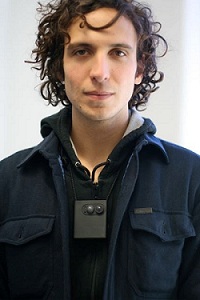Dr. Bob Cook
Qualitative market research is a hugely important industry that provides those that need it with a greater understanding of how people think and behave. The output produced by the industry has an important role in developing all manner of vital things in our lives – from government social policy to the correct balance of celebrities featured in our magazines. Given this importance, it is clearly essential that the information that we provide is accurate – not estimate.
At present the majority of data gathering in the industry is dominated by interrogatory techniques in methodology such as focus groups and formal depth interviews. These are enormously successful techniques that continue to deliver excellent results. However, one potential problem that this kind of approach is a reliance on the vagaries of the human memory.
This presents researchers with a variety of potential issues that must be considered when coming to analyse and make sense of what people tell us in interviews and focus groups.
In methodology commonly employed, researchers spend a lot of time asking people to recall thoughts and behaviour that took place some considerable time in the past – and often relating to things that are processed at a fairly subconscious level. People will do their best to remember accurately, but in reality what we invite people to do is to guess, confabulate, estimate or ‘refer back to’ relevant schema.
In the past, the most common way to address this issue was to have people actively record things as they went along – but in doing so we asked them to disrupt both their normal behaviour and their thought processes. Another way in which methodology seeks to understand the lives and behaviour of our subjects is via traditional ethnographic observation. However, the realities of client budgets and time lines often mean that the purity of this approach is compromised in commercial research.
Enter passive lifelogging and FishEye™. This is a technique that we have been developing over the past year, based around a wearable camera that automatically takes 180° photos of the world as seen and experienced by a subject. The camera relentlessly records images every 5 seconds and is not mediated by the wearer – as other techniques such as respondent photo and video diaries would be. The resulting output is a complete sequential narrative of the subjects life composed of richly contextual still images.
subject. The camera relentlessly records images every 5 seconds and is not mediated by the wearer – as other techniques such as respondent photo and video diaries would be. The resulting output is a complete sequential narrative of the subjects life composed of richly contextual still images.
Having captured life in its un-edited entirety, this we use the output of the cameras for analysis to define an interview agenda – with the images from FishEye™ becoming the stimulus. Discussions are then rooted in observed reality, rather than a version of it cobbled together by a limited and subjective memory.
A good example of the advantage of using lifelogging as a methodology can be seen in a recent project we undertook looking at people’s ‘green behaviour’. Subjects were asked to wear the camera over a couple of days – but were not told the specific agenda of the research. Using a traditional diary to record specific ‘green acts’ would have inevitably run the risk of encouraging people to exaggerate an aspect of their lives that is generally viewed as positive by others. Using lifelogging allows the diary filter to be applied retrospectively so as not to influence the behaviour at the time.
In another recent project, we looked at the role and consumption of treats on Christmas Day. Using FishEye™ allowed us access to an important situation for the manufacturers of chocolate that we would not normally be party to. Believe it or not, people tend to prefer Christmas without the alien presence of research practitioners – and this approach gave us a unique and realistic glimpse into an emotive and important occasion that would normally be off limits.
Lifelogging brings an unprecedented new perspective for research into the world of those that we seek to understand. FishEye™ grants us access to the world through the eyes of others, and when coupled with other methodological elements, this brings incredibly rich output, which truly gives clients a greater understanding of the people they seek to engage and interact with.
Dr. Bob Cook is the innovation and inspiration director at Firefish Qualitative Research


